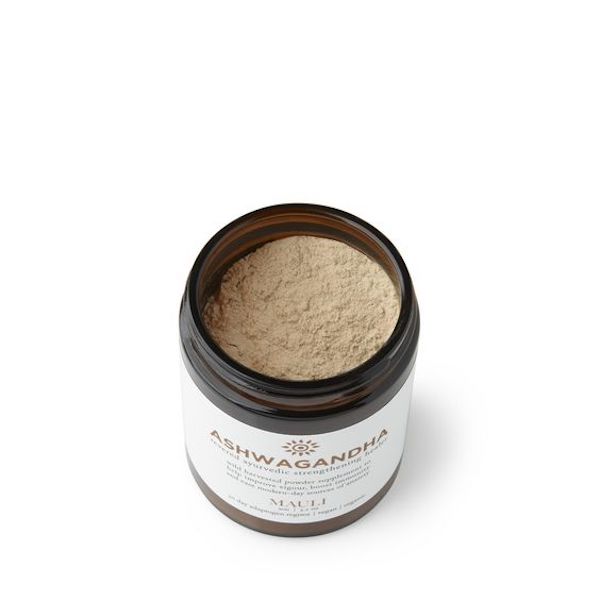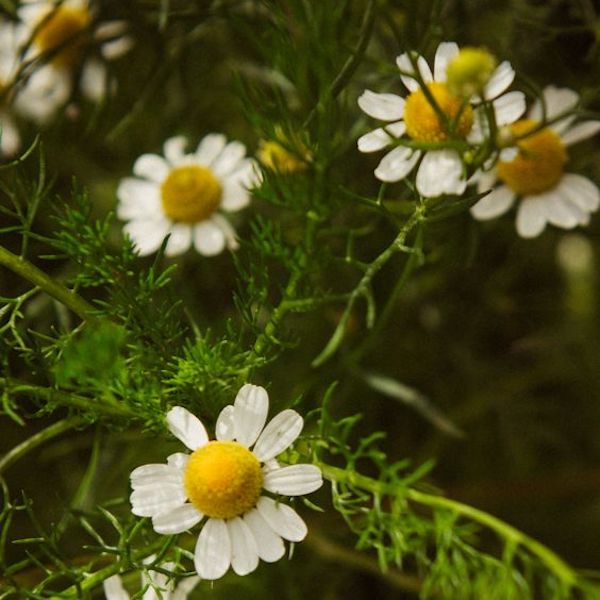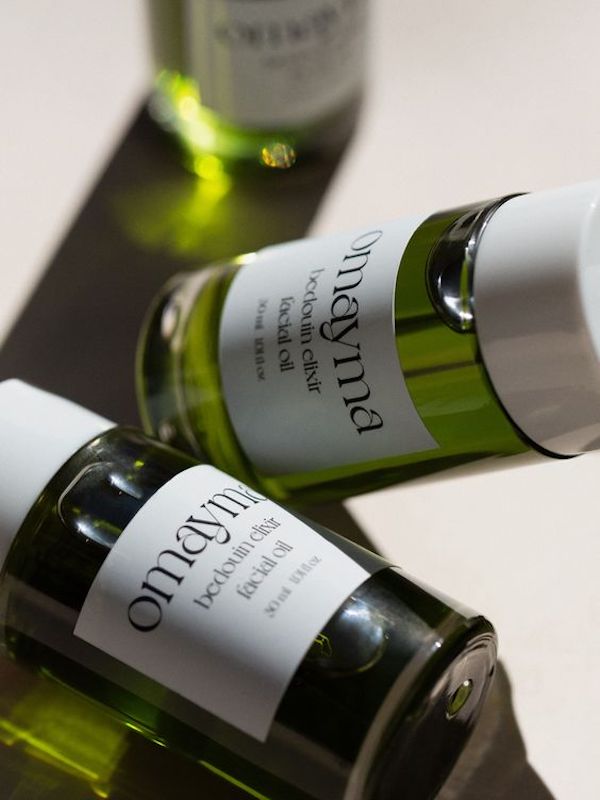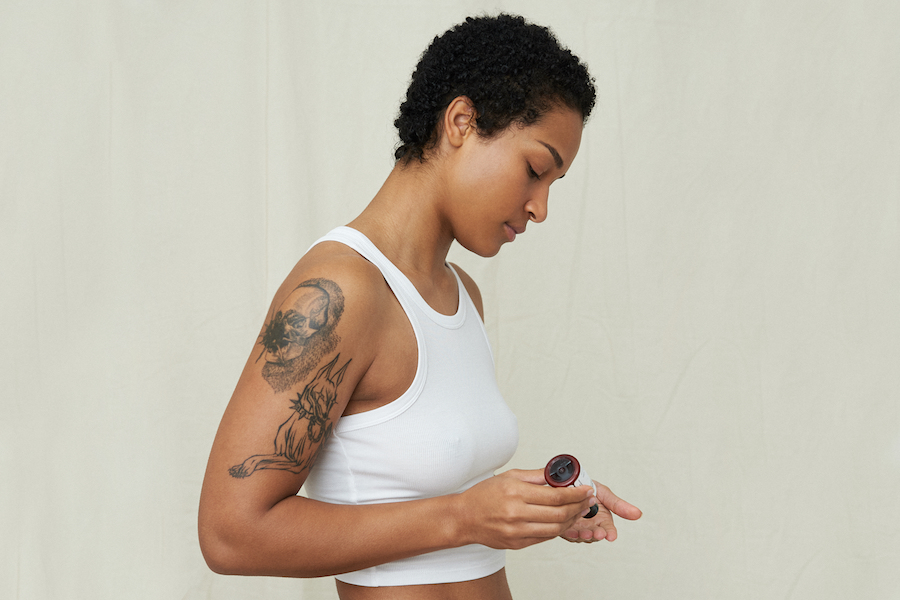10 Herbs To Add To Your Skincare Routine For A Natural Glow
10 Herbs To Add To Your Skincare Routine For A Natural Glow
Herbs are the natural secret to freshen up your beauty routine for clear, healthy skin. They are known for their healing properties and have been used for centuries to help manage an array of skin and other health conditions. Herbal remedies often are applied topically and provide anti-inflammatory, anti-bacterial, hydration and wound-healing benefits. Unless you have an allergy or sensitivity, herbs offer a milder alternative to prescription topical medications. Speak with your dermatologist or general doctor if you have any concerns before use.
There are a wide variety of herbs available to treat common skin issues, from acne to eczema and sunburns. Even if your skin is relatively calm, integrating herbs into your routine can enhance your skin’s tone and texture. Here are some of the most beneficial herbs for healed, smooth and glowy skin.
Aloe Vera
This gel-like solution soothes more than just sunburns. Aloe vera often refers to the gel-like portion of the plant that shares the same name. It is packed with vitamins A, C, E and B12 and offers anti-inflammatory properties. Aloe vera promotes collagen production to help speed up the wound healing process while reducing scarring from minor burns and skin irritating conditions. It is a common natural treatment for conditions, including acne, eczema, rashes and psoriasis. This remedy also is rich in antioxidants to prevent sun damage and slow the skin aging process. It offers antifungal and antibacterial properties, too.

In a 2019 study, aloe vera was clinically proven to accelerate wound recovery time and lessen the risk of infection, redness and irritation. The gel-like substance contains approximately 98% water and helps keep the skin hydrated. However, when incorporating aloe vera into your regular routine, using too much is not a good thing as it can start to dry out your skin. For occasional burns or rashes, feel free to use aloe vera on the affected area 1-3 times a day. While some individuals use it daily, speak with your dermatologist to ensure that this practice is right for you.
Ashwagandha
Known for its stress-fighting benefits, ashwagandha is an antioxidant-rich powerhouse. It is medically classified as an adaptogen – a group of herbs known to alleviate stress and reduce fatigue. Ashwagandha has been frequently used in Ayurvedic medicine in present-day India and regions throughout the Middle East and Africa for thousands of years. It is often ingested as a supplement and also can be consumed crushed up as a powder to be used in food or tea. Many skincare products also incorporate this powder in their products for topical use.

Credit: Face & Co./Pinterest
Ashwagandha offers anti-inflammatory, anti-bacterial and cortisol-lowering benefits. These properties help prevent acne breakouts from unwanted microbes and hormone imbalances. This herbal remedy also promotes collagen production to reduce scarring and redness, smoothen your skin’s texture and slow down its aging process.
Use an ashwagandha-infused moisturizer or beauty oil to incorporate it into your routine.
Calendula
Derived from the pot marigold flower, calendula oil promotes skin healing, hydration and protective benefits for a youthful glow. Its anti-inflammatory properties help prevent acne breakouts, skin rashes, dryness and soothe irritants from conditions like eczema and rosacea. This botanical remedy contains high levels of flavonoids and carotenoids – giving the oil its vibrant orange hue. These antioxidant-rich compounds aid collagen production and protect your skin from sun damage, uneven skin texture and infections.

As one of the main ingredients in Zensa Healing Cream, this sunny herb is also known to promote wound healing. Calendula oil is rich in calendic and linoleic fatty acids. These elements aid the skin to optimize nutrient absorption and moisture retention to keep it smooth, even and hydrated. These properties prevent excess water loss, dryness and cracked skin – all of which leave your skin more vulnerable to infection. Learn more about calendula oil’s various skin benefits here.
Chamomile
This herb offers calming benefits both as a tea and alongside your toner. Chamomile contains anti-fungal, antibacterial and antiseptic properties to help heal minor wounds, acne, skin rashes and inflammation-related conditions. Its antioxidant-rich profile prevents sun damage, blocks free radical-related aging and promotes smoother skin texture. These nutrient-dense compounds aid in soothing the skin and keep redness at bay.
While chamomile-enriched products are universally beneficial, those with sensitive skin will likely see the most skin-improving results.

Credit: Maison/Made /Pinterest
Dandelion
This antioxidant-rich plant supports your immunity, skin and your overall physical health too. Dandelion leaves, roots and their extracts all contain these healing properties. Their compounds contain anti-inflammatory qualities to promote collagen production and aid in moisture retention. With these benefits, dandelion root extracts help fight against acne, skin irritation and aging – which all help to keep your skin texture smooth. In a 2015 study, dandelion leaves were found to prevent UVB radiation damage when applied to the skin immediately before or after sun exposure.
Dandelion-infused skincare products are known for their skin calming benefits. For those with acne-prone skin, this herbal remedy could be pivotal to calm and reduce redness. However, if you have a ragweed or similar allergy, speak with your dermatologist before using a dandelion-containing moisturizer or serum.
Holy Basil
Alongside its fresh aroma, holy basil is packed with vitamin C. These immune-boosting properties help prevent skin infections and irritation. Like ashwagandha, holy basil is also part of the adaptogen herb family and contains similar, stress-reducing and anti-inflammatory compounds. It has long been a staple in ayurvedic medical practices and is revered for its antibacterial qualities.

Credit: Fruition Seeds/Pinterest
Holy basil leaves can be directly applied to the skin to reduce irritation and alleviate conditions, such as eczema and rashes. It also possesses skin brightening effects to prevent and reduce hyperpigmentation. All of these benefits make this botanical extract effective to get rid of acne and fight signs of skin aging, including wrinkles and fine lines.
Several toners include holy basil and they are a great addition to an acne-fighting or anti-aging skincare routine.
Lavender
With its calming scent, it should be no surprise that lavender offers various skin soothing and healing benefits. Lavender oil can be found in moisturizers and serums or directly applied to the skin. It fights bacteria and is antifungal to help unclog pores and reduce acne and skin redness while also preventing future breakouts.
Lavender oil is effective at alleviating symptoms from chronic skin conditions, such as eczema or psoriasis, and nourishes dry skin. Hydration prevents cracked skin patches – which leave you more susceptible to infections. Its anti-inflammatory properties promote its wound-healing benefits. These compounds also soothe any minor burns, cuts and insect bites by cleansing the area and reducing any swelling.
Additionally, lavender offers anti-aging benefits. This essential oil can lighten the skin to promote a more even skin tone and reduce hyperpigmentation.

Thyme
This savory skin herb solves several skin problems thanks to its antifungal, antibacterial and anti-inflammatory properties. Thyme oil is used to fight acne and its antimicrobial properties help it keep the skin fresh and germ-free. Its nutrient-rich profile, combined with these cleansing qualities, promotes wound healing and can accelerate the healing process for scars, cuts or burns and other minor wounds – including a nearly healed tattoo.

Credit: Verishop/Pinterest
Thyme oil’s skin-calming effect also aids in alleviating skin rashes, eczema flare-ups and irritated patches from similar conditions. Using this herbal remedy can prevent dry and cracked skin, which is more susceptible to irritation and infection, while simultaneously keeping the area free of bacteria and fungal pathogens. Together, all of these attributes allow thyme to enhance your skin texture and natural glow.
Turmeric
With its rich sunny hue, turmeric is rich in antioxidants to help your skin glow. It has anti-inflammatory properties that promote collagen production and speed up the wound healing process. These nutrients aid in fighting acne caused by dead skin tissue build-up or minor acne scarring and helps alleviate inflammatory skin conditions, such as psoriasis and eczema.
Turmeric helps regulate sebum (the oil produced in the glands below in your pores) and makes it a great option for those with oily or acne-prone skin. Its antioxidant compounds can prevent wrinkles, fine lines and hyperpigmentation, making it a useful addition to an anti-aging skincare routine.
Note that turmeric can temporarily turn your skin yellow and should not be used with lime juice (at least regularly) because, combined, they create a skin lightening agent. Speak with your dermatologist before use if you’re concerned about a turmeric allergy or sensitivity.

Witch Hazel
This powerful herb’s sorcery could be the secret to magically smooth and healthy skin. Witch hazel is native to North America and its oils come from the plant’s bark and leaves. While also used as a tea, witch hazel provides several topic benefits due to its high antioxidant levels and anti-inflammatory compounds. Witch hazel is rich in gallic acid and tannins that fight free radicals, which can cause skin conditions such as acne, eczema, psoriasis and other skin rashes. Its tannins are known to help fight off skin infections, alleviate dryness (including on your scalp) and shield you against skin damage.
Witch hazel also contains antiviral and antibacterial properties to prevent infection, breakouts and other causes of uneven skin texture or irritation.
Combine it with lavender or thyme oil to use as your daily toner for maximum benefits.
